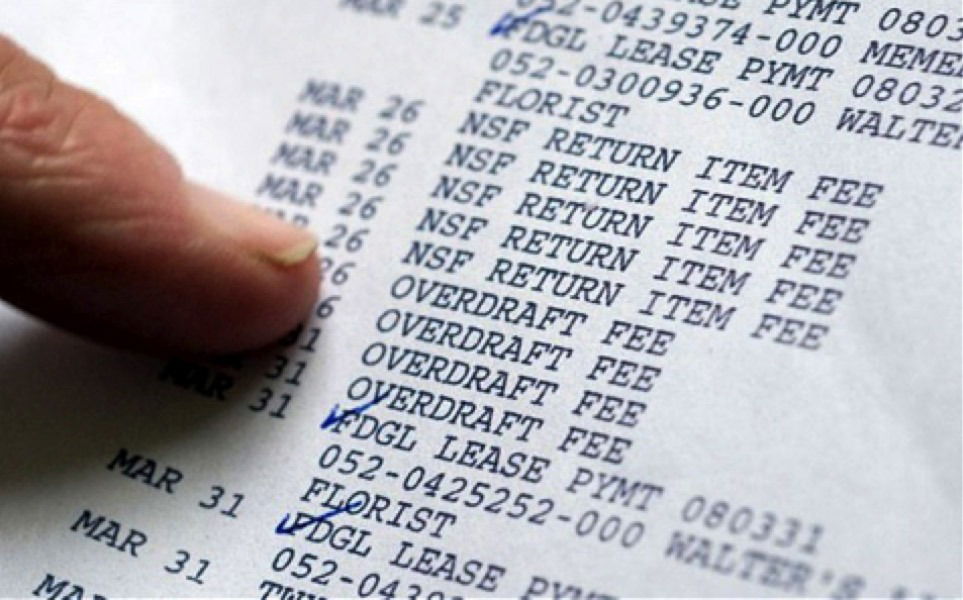Living on a fixed income means every dollar counts. The right checking account can help you avoid fees, earn interest, and simplify your banking. While some banks offer dedicated senior accounts with perks like free checks and waived monthly fees, many standard checking accounts also provide great benefits for seniors.
With so many options, it’s important to choose an account that fits your financial needs—whether that means low fees, easy branch access, or strong online tools.
8 Best Checking Accounts for Seniors
Here’s a look at the best checking accounts for seniors and how to find the right one for you. Some are designed specifically for seniors, while others offer perks that make them a great fit.
1. U.S. Bank Smartly Checking Account
U.S. Bank Smartly Checking is a solid option for seniors, especially those 65 and older.
2. Citigold Checking Account
Citigold® Checking is designed for individuals who want premium banking services and integrated wealth management.
3. Chase Total Checking
Chase Total Checking® is a widely available account with flexible ways to waive its monthly fee.
4. Charles Schwab Bank High Yield Investor Checking
The Charles Schwab Bank High Yield Investor Checking® account is a great option for seniors who travel frequently or want seamless integration between banking and investing.
5. Axos Bank Golden Checking Account
Axos Bank Golden Checking is designed specifically for individuals aged 55 and older, offering a no-fee banking experience with interest on all balances.
6. TD Bank 60 Plus Checking
TD Bank 60 Plus Checking is designed for individuals aged 60 and older, offering an interest-bearing account with low fees and added perks.
7. Ally Bank Interest Checking
Ally Bank’s Interest Checking is a strong option for seniors who prefer online banking and want to earn interest on their balance.
8. PNC Virtual Wallet
PNC’s Virtual Wallet combines checking and savings with built-in budgeting tools, making it a great option for seniors who want to track their spending and plan ahead.

How to Choose the Best Senior Checking Account
Picking the right checking account can help you avoid unnecessary fees, keep your money safe, and even earn a little interest. Here’s what to consider when making your choice.
Fee Structure
Monthly maintenance fees can eat into your budget, especially if you’re living on a fixed income. Many banks waive these fees if you meet certain requirements, like maintaining a minimum balance or setting up direct deposit. Online banks often skip these fees altogether, making them a smart option for cost-conscious seniors.
Branch Access vs. Online Banking
If you prefer in-person banking, look for a checking account from a bank with local branches. Some seniors value the ability to visit a teller, especially for tasks like depositing checks or resolving account issues. However, online banks tend to offer better interest rates and fewer fees. If you’re comfortable with digital banking, an online account can be a great alternative.
Interest-Bearing Options
Checking accounts don’t usually offer high interest, but some still pay a modest amount. If you keep a larger balance in your account, an interest-bearing account could help your money grow. Just make sure the account doesn’t come with high fees that cancel out the benefits.
Customer Service and Fraud Protection
Seniors are often targeted for fraud, making account security a top priority. Look for banks that offer 24/7 customer support, fraud alerts, and identity theft protection. Some banks even provide dedicated support lines for seniors, which can be helpful if you ever need assistance.
Common Checking Account Fees and How to Avoid Them
Even if an account looks great on the surface, hidden fees can add up. Here’s what to watch out for and how to avoid extra charges.
Monthly Fees
Banks often charge a monthly fee unless you meet certain requirements, like maintaining a specific balance or setting up direct deposit. Many senior-friendly accounts waive this fee automatically, while online banks tend to skip it altogether.
Overdraft Fees
Overdraft fees can be steep, with some banks charging as much as $35 per transaction. To avoid them, opt for overdraft protection, which links your checking account to savings or a credit line. Some banks also offer “no-fee overdraft” programs that cover small negative balances without charging a penalty.
ATM Fees
If you frequently withdraw cash, ATM fees can add up quickly. Look for a bank with a large ATM network or one that reimburses out-of-network fees. Some online banks refund ATM fees nationwide, making them a good option if you travel often.
Paper Statement Fees
Many banks now charge for paper statements, encouraging customers to switch to digital banking. If you prefer paper statements, check whether your bank offers them for free or if there’s a way to waive the fee. Some senior accounts still provide paper statements at no cost.
Other Banking Options for Seniors
Checking accounts aren’t the only way to manage your money. Here are a few other banking options that might suit your needs.
Credit Union Checking Accounts
Credit unions often offer lower fees and better interest rates than traditional banks. Many also provide personalized customer service and community-focused banking. If you prefer a local institution with strong customer support, a credit union could be a great choice.
Joint Checking Accounts
If you share expenses with a spouse or family member, a joint checking account can simplify bill payments and budgeting. Just be sure to choose a trusted co-owner, as both parties will have full access to the account.
Senior Savings Accounts
Pairing a checking account with a high-yield savings account can help you earn more on your money while keeping it accessible. Some banks offer senior-specific savings accounts with higher interest rates and fewer restrictions.
Final Thoughts
Finding the right checking account as a senior comes down to avoiding unnecessary fees, ensuring easy access to your money, and taking advantage of perks like interest earnings or fraud protection. Whether you prefer a traditional bank with local branches or an online account with fewer fees, there are plenty of options that cater to different needs.
Before opening an account, compare the features that matter most to you, such as ATM access, mobile banking tools, and overdraft protection. By choosing wisely, you can simplify your banking, save money, and ensure that your finances remain secure and stress-free.
Frequently Asked Questions
What happens if I don’t meet the minimum balance requirement?
If your checking account requires a minimum balance and you fall below that amount, your bank may charge a monthly maintenance fee. Some banks offer ways to waive this fee, such as setting up direct deposit or linking multiple accounts. If maintaining a balance is difficult, consider an account with no minimum balance requirement.
Can I open a senior checking account with my spouse?
Yes, most banks allow joint checking accounts, including those designed for seniors. Both account holders will have full access to deposits, withdrawals, and account management. This can be helpful for budgeting and bill payments but requires trust, as both individuals are equally responsible for the account.
Are there any special perks for seniors who receive Social Security benefits?
Some banks offer benefits like early direct deposit for Social Security payments, allowing you to access funds up to two days sooner. Additionally, certain accounts waive monthly fees if you have regular Social Security deposits. It’s worth checking if your bank offers any incentives for seniors receiving benefits.
What should I do if I suspect fraud on my account?
If you notice unauthorized transactions, contact your bank immediately. Most banks have fraud protection policies that allow you to dispute charges and recover lost funds. To prevent fraud, enable account alerts, use secure passwords, and review statements regularly for suspicious activity.
How can I switch checking accounts without disrupting my payments?
To avoid missed payments, open your new account before closing the old one. Update direct deposits, automatic bill payments, and any linked accounts. Keep both accounts open for a month to ensure all transactions process correctly before fully switching over. Many banks offer account transfer assistance to make the process smoother.












